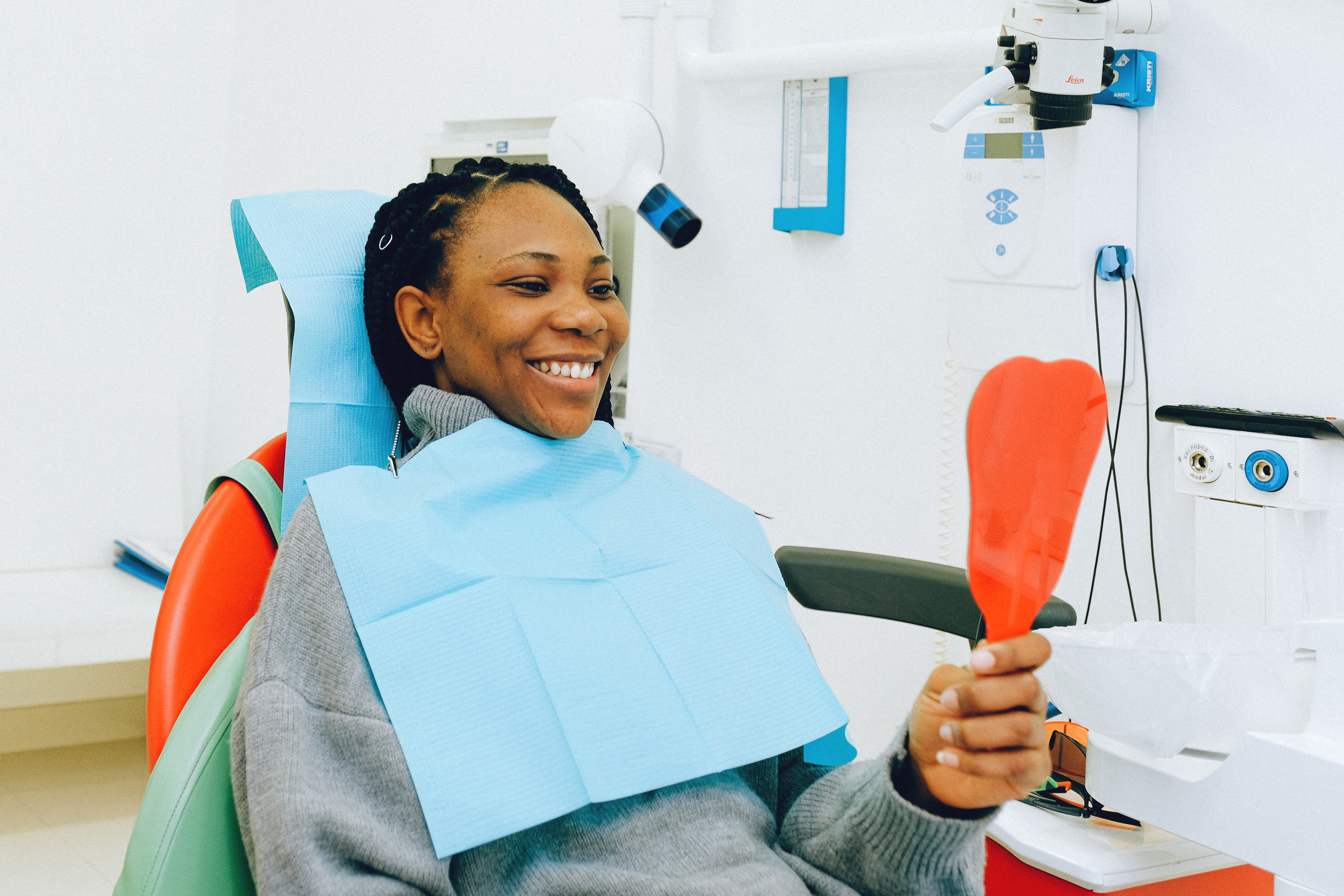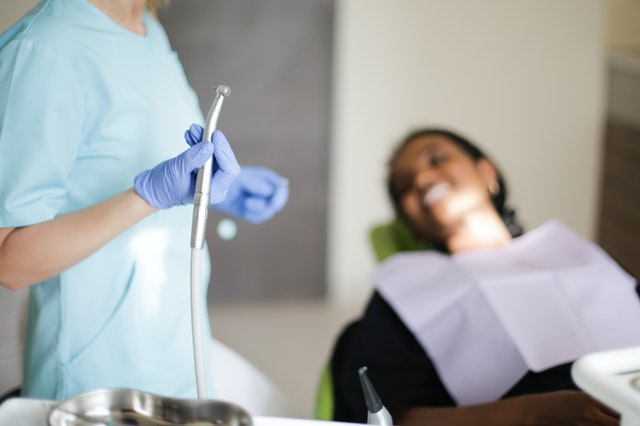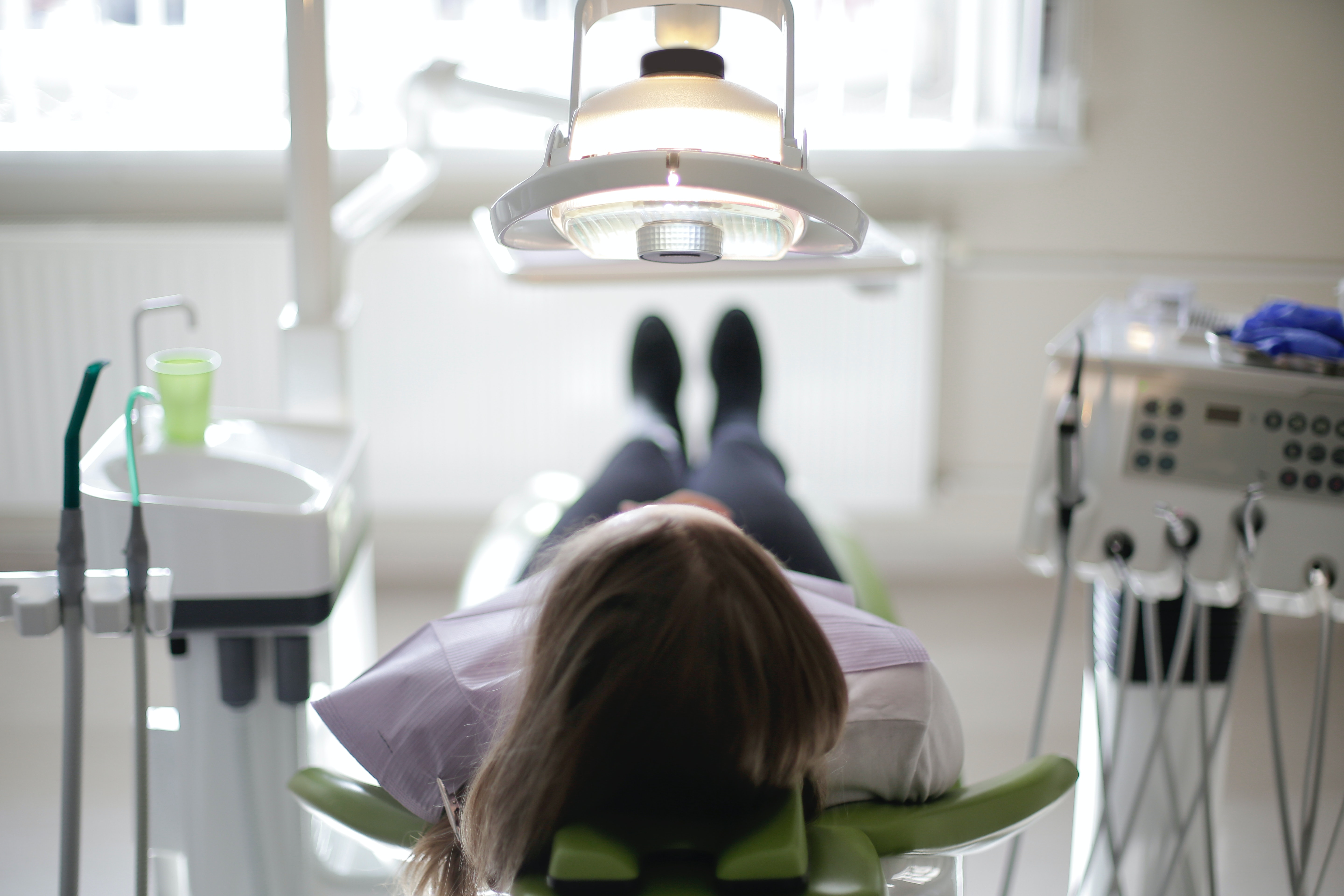Along with regular brushing and flossing, professional dental cleanings play an important part in keeping teeth healthy. Some people avoid getting their teeth cleaned at the dentist because they think it will not only be painful, but might actually harm their teeth.
If it’s been a long time since the last cleaning, it is true that it can cause some discomfort. But it is a myth that dental cleaning will damage teeth. In fact, the harm caused by not going to the dentist for regular cleanings far outweighs the dangers of the procedure itself.
Why People Think Dental Cleaning is Harmful
The things that concern some patients about dental cleanings typically fall into three categories.
- The methods
- The products
- The side effects
In reality, the methods and products have all been proven to be safe. The side effects one might feel after a cleaning are short-term and go away quickly. And in fact, the better shape that teeth and gums are in to begin with, the less chance there is for any discomfort.
Are Dental Cleanings Necessary?

Whenever we eat or drink, our teeth are coated with acids and bacteria. These bind together and coat the teeth with a sticky substance called plaque or tartar. When plaque stays on the teeth for an extended period of time, it can begin to form tooth decay, which will eventually eat away at the tooth’s enamel and cause a cavity.
Regular brushing does a lot to clean away the plaque, but it can’t always completely remove it. Periodic dental cleanings done by a professional (dentist suggest them twice a year) give teeth a more thorough cleaning, helping prevent the chances of cavities.
Myth #1: Dental Cleaning Weakens Tooth Enamel
A professional cleaning starts with the dental hygienist using metal instruments to scrape and scratch off tartar and plaque from the surface of the teeth. This is known as dental scaling.
The harder the layer of plaque, the more vigorously the hygienist will need to scrape. This leads some people to believe that the procedure will also scrape away the hard enamel on the outside of the tooth.
Although it might feel like the teeth are being scraped too hard, tooth enamel is very strong and can’t be scratched or chipped during a normal cleaning. Remember that a long time between cleanings gives plaque more of a chance to take hold. More frequent cleanings mean less plaque, and therefore less pressure applied when scaling the teeth.
Myth #2: Dental Cleaning Uses Harsh (and Possibly Toxic) Chemicals

There are only two products that are typically used during a dental cleaning: Tooth polish and fluoride rinse or varnish. Both are safe and neither will damage teeth.
Tooth Polish
After the scaling process to remove plaque, the hygienist will polish the teeth. This is done with an electronic instrument—usually a slow-speed dental drill with a rubber attachment. It is a lot like brushing with an electric toothbrush but offers a deeper cleaning than can be done at home.
The toothpaste used at the dentist office is more commonly called tooth polish. It contains pumice, which is a gritty substance made from volcanic rock. It’s this grittiness that concerns some patients. They wonder if the abrasive toothpaste could scratch or damage the enamel.
While it’s true that tooth polish acts like sandpaper, it is only scrubbing away the plaque that wasn’t removed during scaling. It’s also good at whitening teeth by removing surface stains left behind by things like coffee and red wine. It is not strong enough to break through the enamel.
Fluoride
Fluoride is a common additive to public water systems across the country because of its ability to help strengthen tooth enamel and prevent cavities. Dentists add fluoride treatments to dental cleaning procedures for the same reason.
After polishing the teeth, the hygienist will often use a fluoride rinse or paint a fluoride varnish onto the teeth. Fluoride has been the subject of controversy over the years. Many people fear it is toxic. According to numerous studies by the American Dental Association, the American Academy of Pediatrics, and other organizations, fluoride is safe and effective at fighting tooth decay.
Myth #3: My Teeth Feel Damaged After a Cleaning

After a dental cleaning, it’s not uncommon for teeth to feel different. For one thing, they may feel extra smooth from the polishing. The after-effects that cause concern however, sometimes make people wonder if the dental cleaning damaged their teeth.
If the dental hygienist had to scrape very hard to remove all of the plaque, it could leave the teeth and gums feeling sensitive. This might be especially noticeable the first time a person eats afterward. This is normal and shouldn’t last more than an hour or so.
During the procedure, a patient’s gums may bleed. This can happen during scaling near the gums or when the hygienist flosses after polishing. This is also normal, especially when flossing isn’t done regularly, and in no way means the teeth or gums have been damaged.
Some people might feel as if there is a gap between two teeth. This does not mean that the enamel has been chipped away. The tools used during a routine cleaning aren’t able to damage teeth in that way. Instead, it is more likely that there had been a buildup of plaque between the teeth. Once it is removed during the cleaning, it can feel as if the space is bigger than it should be.
Don’t Let Myths Keep You From a Professional Dental Cleaning
Dental cleanings, when performed by a professional at the dentist’s office as part of a regular checkup, are perfectly safe. They are a basic part of good dental care that will help keep a patient’s teeth healthy and reduce the chance of cavities.
If you do have concerns that a dental cleaning will damage teeth, discuss them with your dentist. They will be able to answer your questions and ease your fears.
If you would like to find a dentist for a checkup and cleaning, use our Make an Appointment tool. It will match you up with a professional in your area.


